EcoSchools Scales Their Online Platform to go Cross Country
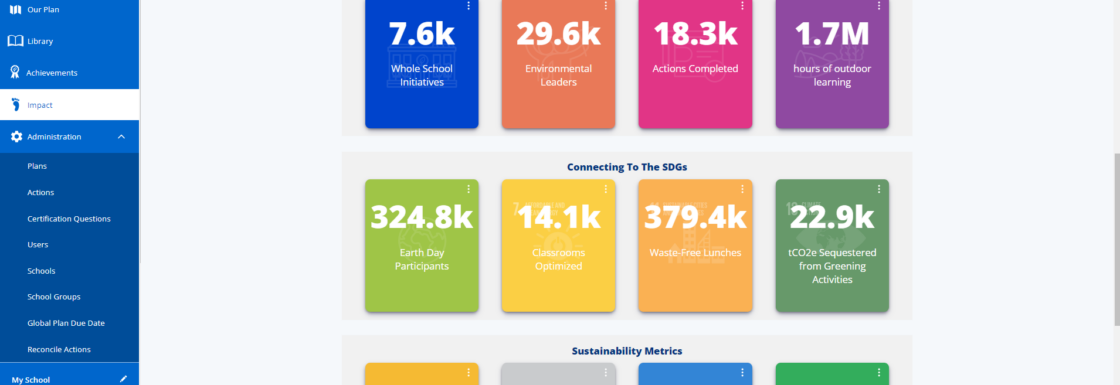
Projects Sponsor
The new online bilingual platform for teachers, administrators, students, and parents in K-12 schools nationwide brings enough sustainability action for the whole class.
EcoSchools Canada, formerly Ontario EcoSchools, has been awarding EcoSchools certifications to Ontario schools since 2006. To qualify for certification, participating schools must complete a range of environmental projects in their community on themes such as waste, energy, school-ground greening, transportation, and more.
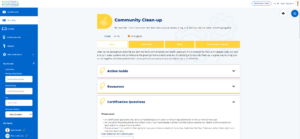
In 2017, EcoSchools began the process of transitioning from an exclusively Ontario program to a national one — becoming freely available to all publicly funded schools across Canada. Alongside their wide launch, the EcoSchools team developed a new online certification platform — the EcoSchools Certification Application (ECA) — designed to deliver curriculum-linked environmental education resources to teachers, incentivize and reward participation, and track progress amongst schools.
The team wanted to enable school staff, students, and members of the school community to work together within the platform to complete their applications each year. The new platform had to be able to track annual results from the national community they were forming, one with the capacity to produce environmental impact reporting and results per school board, region, and nationally. It had to be customizable to ensure regional relevance. As well, they wanted the site to generate annual income over development and maintenance costs.
It was an ambitious wish list and the EcoSchools team spent three years consulting with their community of teachers, school board members, and students who participated in their program and served on their advisory committees in the hopes of fulfilling it. The internal team also researched how to incorporate sustainability metrics into the platform, different funding models, and curriculum mapping on a national scale. These results informed the structure, UX, and main elements of the online platform that they could pilot with a live audience both inside and outside Ontario.
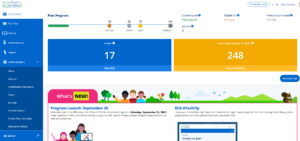
After the research, design, and initial content development phases of the project, the team launched an RFP to select 3rd party developers to build the platform to their specifications. They landed on a firm called Finnovate, which had experience building educational platforms and understood EcoSchools’ vision for the project.
The initial development ended in early 2020 — a tricky year for the team as, in February of that year, the new Ontario provincial government cut their funding, representing over 55% of their annual income — to zero. On top of that, the team’s plan to launch the pilot in New Brunswick with in-person workshops and focus groups had to be scrapped due to COVID-19. Ultimately, they relied primarily on online surveys and testing from teachers in New Brunswick and the EcoSchools community in Ontario.
Despite these challenges, EcoSchools continued development over the spring and summer and launched nationally in the fall of 2020. While schools nationwide were struggling with the pandemic, EcoSchools still managed to register over 1,200 schools on the new platform across 9 provinces and territories in the 2020-21 school year. This first successful year also resulted in additional grant funding that helped them develop more features to improve the platform.
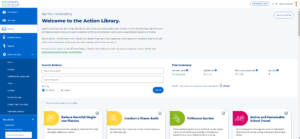
Their new, unique, gamified platform has allowed the organization to become a national leader in environmental education. With a growing number of ENGO partners both in Canada and abroad. It’s an innovation that has raised the bar for school sustainability reporting and action.
EcoSchools’ strategy of working collaboratively with partners has allowed them to expand their program without competing with regional environmental education programs. As virtually all organizations require a strong data collection tool, they’ve found that working with partners to use the ECA collaboratively – rather than develop additional platforms – has reduced overall costs while still achieving the strategic objectives of their partners.
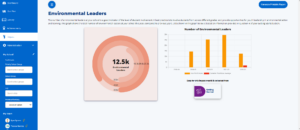
Together, EcoSchools’ partner schools have reported the completion of over 30,000 actions, quantified their school’s carbon emissions, and measured their progress in achieving the UN’s sustainable development goals.
That’s a lot of students, our future leaders, working to get net-zero on the big test.













